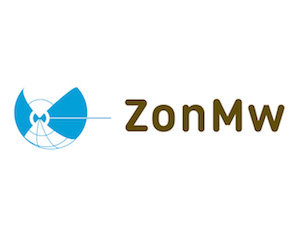
Heine receives ZonMw grant to introduce clinical-safe reprogramming methods
A new approach to generate specific types of autologous cells has emerged: Direct lineage conversion of one type of somatic cell to another. Mouse and human fibroblasts have been converted into fully mature neurons, oligodendrocytes and neural stem cells (NSC). Major advantages of this reprogramming technology are the rapid induction of neural phenotypes and the reduced risk of teratoma formation. An expandable induced NSC (iNSC) population which can be differentiated into all neuroectodermal lineages provides great prospects for transplantation therapies for neurodegenerative diseases. Several groups reported on the generation of a stably expandable iNSC population which can be differentiated into neurons, oligodendrocytes and astrocytes. The lab of Dr. F. Edenhofer, Würzburg University, Germany, showed they can generate induced NSCs (iNSCs) which uniformly express Nestin, Pax6 and Olig2, have a genome-wide transcriptional profile similar to that of brain-derived NSCs and can be expanded for >50 passages.
Dr. Vivi Heine, board member of the iPS expertise center, has received a ZonMw grant within the Translational Adult Stem Cell Research programme to gain the latest expertise on direct reprogramming in de Edenhofer lab. By introducing the latest reprogramming methods into our center, we want to generate new GPC protocols which are clinical-safe.
The discovery that somatic cells can be reprogrammed into induced pluripotent stem cells (iPSCs) allows generation of unrestricted numbers of specific types of autologous cells. This discovery has fundamentally changed the stem cell field and gave new prospects for personalized medicine, such as cell replacement therapy. The first human iPSCs were generated from skin fibroblasts through retro- or lentiviral transfection of 4 pluripotency-inducing genes, OCT4, SOX2, KLF4 and cMYC, the “Yamanaka factors”. However, permanent insertion of the reprogramming factors in the host genome must be avoided because the majority of pluripotency-inducing genes have been linked to cancer. Various alternative reprogramming strategies to avoid the use of integrative viruses have been published since. Most of them have major drawbacks concerning reproducibility, labor-intensity, technical complexity and an impractically low efficiency.
A new approach to generate specific types of autologous cells has emerged: Direct lineage conversion of one type of somatic cell to another. Mouse and human fibroblasts have been converted into fully mature neurons, oligodendrocytes and neural stem cells (NSC). Major advantages of this reprogramming technology are the rapid induction of neural phenotypes and the reduced risk of teratoma formation. An expandable induced NSC (iNSC) population which can be differentiated into all neuroectodermal lineages provides great prospects for transplantation therapies for neurodegenerative diseases. Several groups reported on the generation of a stably expandable iNSC population which can be differentiated into neurons, oligodendrocytes and astrocytes. The lab of Dr. F. Edenhofer, Würzburg University, Germany, showed they can generate induced NSCs (iNSCs) which uniformly express Nestin, Pax6 and Olig2, have a genome-wide transcriptional profile similar to that of brain-derived NSCs and can be expanded for >50 passages.
Dr. Vivi Heine, board member of the iPS expertise center, has received a ZonMw grant within the Translational Adult Stem Cell Research programme to gain the latest expertise on direct reprogramming in de Edenhofer lab. By introducing the latest reprogramming methods into our center, we want to generate new GPC protocols which are clinical-safe.
2026 © iPS Center. All Rights Reserved. Privacy Policy | Terms of Service
